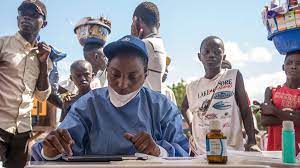Countries address global health issues through a combination of international cooperation, public health strategies, and diplomatic efforts. Collaboration with international organizations like the World Health Organization (WHO) is crucial, as it provides a platform for information exchange, resource sharing, and coordinated responses to health crises. Nations contribute to global health initiatives by funding research, supporting healthcare infrastructure in developing regions, and participating in joint efforts to combat diseases.

Additionally, countries engage in diplomatic dialogue to establish frameworks and agreements that address cross-border health challenges. Agreements on disease surveillance, response mechanisms, and the equitable distribution of vaccines are examples of diplomatic efforts to strengthen global health security.
National governments implement domestic policies to enhance public health, recognizing the interconnectedness of global health issues. This includes investing in healthcare infrastructure, disease prevention, and health education. Furthermore, countries contribute to international efforts during pandemics by sharing medical expertise, providing financial aid, and facilitating the distribution of medical supplies.
The COVID-19 pandemic has highlighted the importance of a collective global response. Vaccine distribution initiatives, like COVAX, aim to ensure equitable access to vaccines worldwide. In summary, addressing global health issues requires a multifaceted approach involving international collaboration, diplomatic efforts, and domestic policies that prioritize public health on a global scale.
Read also: How do international organizations respond to public health crises